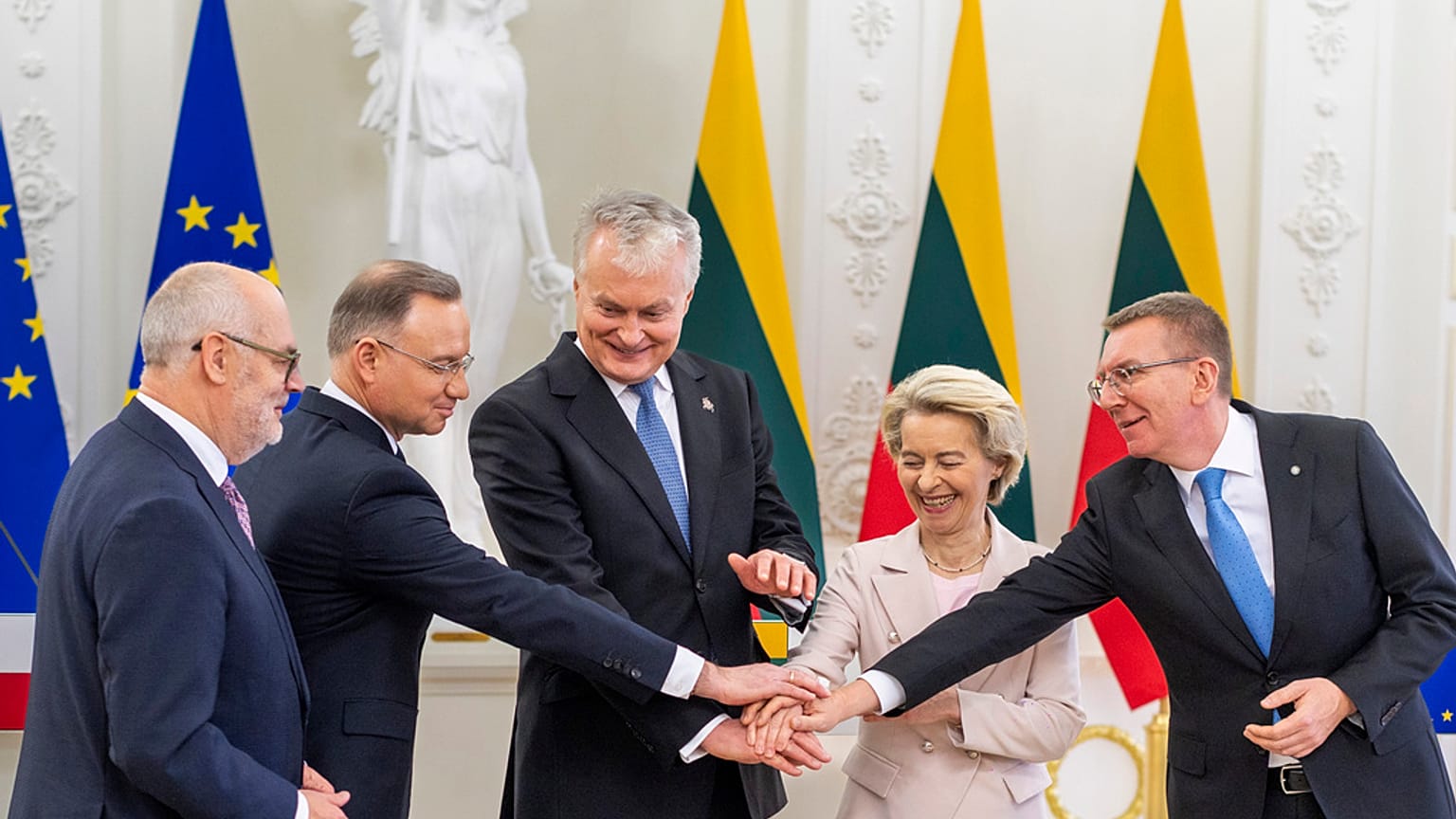The Baltic states connected to electricity supplied via Finland, Sweden and Poland after disconnecting from Russia, which had supplied them electricity for decades.
Latvia, Estonia and Lithuania all joined the European electricity system on Sunday with a ceremony highlighting the historical significance of no longer relying on Russia for its electricity.
"We did it!" Edgars Rinkēvičs, the president of Latvia, posted on X:
It came more than three decades after the collapse of the Soviet Union, ending the Baltics' final ties to oil- and gas-rich Russia. For the three countries, as well as the rest of Europe, the move was steeped in geopolitical and symbolic significance.
On Saturday, all remaining transmission lines between them and Russia, Belarus and the Russian exclave of Kaliningrad, wedged between EU members Poland and Lithuania and the sea, were switched off one by one. Lithuania first — where a specially-made 9-metre tall clock in downtown Vilnius had counted down the final seconds — then Latvia a few minutes later, followed by Estonia.
European Commission President Ursula von der Leyen, as well as the presidents of Poland and the Baltic states, were to attend a ceremony in Vilnius on Sunday evening along with other dignitaries.
The Baltic countries, which are all NATO members, have often had difficult ties with Russia since declaring independence from the USSR in 1990 — and relations reached a new low over Russia’s full-scale invasion of Ukraine in 2022.
Sixteen power lines that used to connect the Baltic states with Russia and Belarus were dismantled in recent years as a new grid linking them with the rest of the EU was created, including underwater cables in the Baltic Sea.
The three Baltic countries, which together have a 1,633-kilometre-long border with Russia and Belarus, informed Moscow and Minsk of the disconnection plan in 2024 to head off any hostile reaction.















